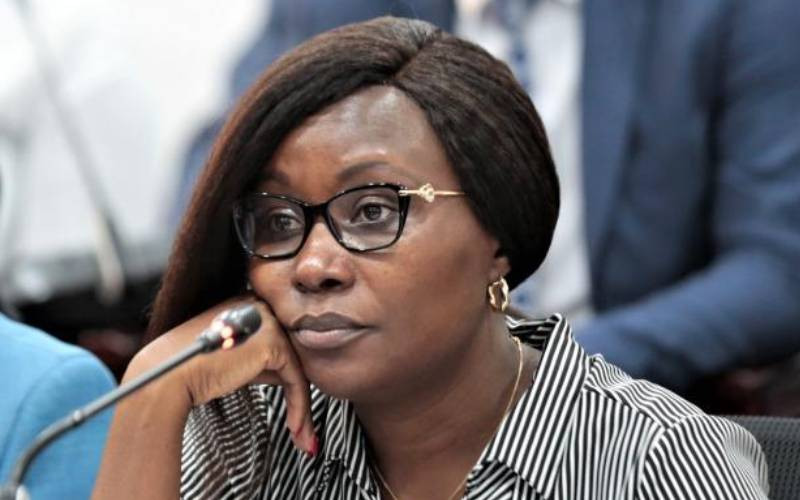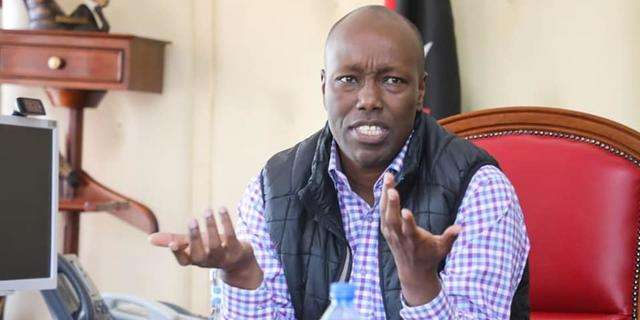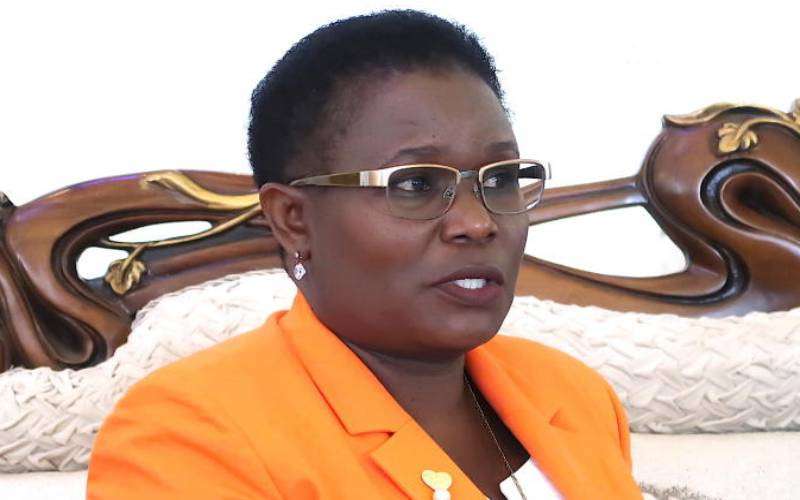By TWV Political Affairs Desk
In a dramatic political shift that could reshape power dynamics in Mount Kenya East, senior sources within the United Democratic Alliance (UDA) allege that President William Ruto is orchestrating the removal of Embu Governor Cecily Mbarire from her role as the party’s National Chairperson. Described by insiders as a “betrayal of a loyal ally,” the move threatens to fracture the alliances that helped propel Ruto to power in 2022 and is sending ripples of unrest throughout the region.
The rift reportedly began during a significant public event in Embu on November 16, 2024, when President Ruto, then Deputy President Rigathi Gachagua, and former President Uhuru Kenyatta attended the consecration and installation of Bishop Peter Kimani Ndung’u at the University of Embu grounds. It marked the first time Ruto and Gachagua appeared together publicly since Gachagua’s impeachment in October 2024.
Sources confirm that both Gachagua and Kenyatta were warmly received by the crowd, drawing cheers when their names were mentioned. Uhuru Kenyatta received a standing ovation, and Gachagua was acknowledged positively by the attendees, an outcome that reportedly caught Ruto’s team off guard.
Mbarire had allegedly assured the President that the event would enhance his support in Embu. She is said to have lobbied State House and UDA headquarters for logistical support and funding to mobilize a favourable crowd and mitigate potential hostility. Despite scepticism from Ruto’s security and political advisers, she urged the President to attend, arguing it was an opportunity to shape the local narrative. The perceived failure to deliver a supportive audience has since fueled tensions within the party.
In the aftermath of the Embu event, questions emerged about the use of lobbying funds. UDA insiders allege that Mbarire, entrusted with resources for grassroots mobilization, either mismanaged or misallocated them. These accusations have intensified claims that she was either complacent or complicit in the President’s public embarrassment, sparking a coordinated push to remove her from the party’s leadership.
In January 2025, Deputy President Kithure Kindiki issued a pointed statement condemning those who “allow the President to be heckled in their own backyard.” The remarks were widely interpreted as a direct rebuke of Mbarire’s failure to secure political control in Embu.
Mbarire, however, has not remained silent. During the Madaraka Day celebrations, she launched a fiery counteroffensive, condemning “meetings held at night in Nairobi” by operatives allegedly plotting her downfall. Without naming names, she accused individuals close to the presidency of undermining her UDA leadership and jeopardizing her 2027 gubernatorial ambitions.
Sources suggest that Public Service Cabinet Secretary Geoffrey Ruku, once considered a political lightweight, is being positioned both as Mbarire’s replacement as UDA Chairperson and as the government’s preferred candidate for Embu Governor in 2027. One insider remarked, “This is about loyalty, results, and strategy. Ruto wants leaders who deliver victories, not excuses.”
The clash reflects a broader realignment within UDA. With Gachagua asserting himself as the de facto leader of the Mount Kenya region, tensions are escalating between his faction and Ruto’s inner circle.
Sources close to Mbarire indicate that she is exploring her options, including consultations with Mount Kenya East leaders aligned with Gachagua. Should she defect from UDA, it would mark the first high-profile exit from Ruto’s Mount Kenya coalition, potentially emboldening other dissatisfied allies. One insider warned, “Ousting Mbarire could backfire. She’s not just a party chair; she represents Ruto’s promises to Mount Kenya East. Betraying her risks alienating the region.”
UDA headquarters has reportedly finalized its strategy: Mbarire must either step down voluntarily or face removal through internal party processes. While Ruto is said to prefer a diplomatic resolution, sources note he is prepared to act decisively if resistance continues.
For now, Mbarire remains defiant, though increasingly politically isolated. Her survival hinges on outmanoeuvring her adversaries and securing support from Gachagua’s growing Mount Kenya faction.
In Kenyan politics, loyalty is a prized asset, and betrayal comes at a high price. The coming weeks will determine whether Governor Mbarire becomes a casualty of UDA’s internal power struggles or emerges from the storm even stronger.





